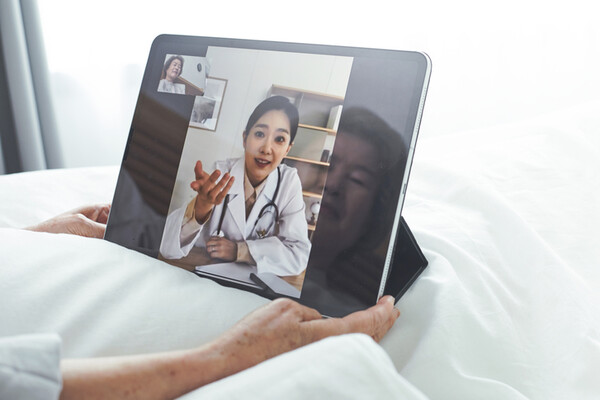In the recent pilot program for telemedicine, over 57.2 percent of the prescribed medications were non-reimbursed drugs, a survey showed.

The survey, conducted by the Korean Pharmaceutical Association (KPA) during the telemedicine pilot program run between June and August, was on 1,142 member pharmacists from Sep. 2-5.
Emergency contraceptives emerged as the most commonly prescribed among them, accounting for 34.6 percent of the non-reimbursed drugs prescribed through the telemedicine program, followed by acne treatment (24.7 percent) and hair loss treatment (22.2 percent).
The survey also showed that the challenges faced by pharmacists during this pilot program were significant.
In particular, 30.3 percent of pharmacists found that verifying the authenticity of prescriptions, while 27.6 percent felt burdened by confirming patient identities, prior consultations, and other administrative tasks.
Regarding pharmacist concerns about future legislative discussions about institutionalizing telemedicine consultations, the main concerns expressed by pharmacists were the potential expansion of drug delivery services (25.6 percent), and allowing marketing strategies such as ratings and reviews of pharmacies on private platforms (24.9 percent).
"Considering that 92.7 percent of the pharmacists responded that they had made telemedicine-related prescriptions or had fewer than 15 cases per month during the pilot program, it's imperative to observe for at least another six months to discern a clear trend," KPA Vice President Kim Dae-won said. "Despite being in the initial stage, pharmacists feel a palpable administrative burden due to telemedicine preparations."
As a result, such concerns over the potential expansion of drug delivery and excessive marketing by private platform companies need to be adequately reflected in the legislative discussion, Kim added.
The telemedicine pilot program began in June after the government lowered the Covid-19 crisis level from “severe” to “alert.”
While telemedicine was available during the severe level, it became illegal under the lowered crisis level.
As a result, the ruling People Power Party requested the pilot project before making any revisions to the related legislation.
In this pilot project, it was possible to provide non-face-to-face treatment for returning patients without medicine delivery.
Related articles
- Doctors are reluctant to go virtual due to unclear legal responsibility: survey
- Guideline for telemedicine unveiled outlining liability, limits on first visits
- Doctors call for permitting telemonitoring for arrhythmia patients
- Hospitals to check patients’ eligibility for remote care from next month
- Medical community's backlash grows as government expands telemedicine

